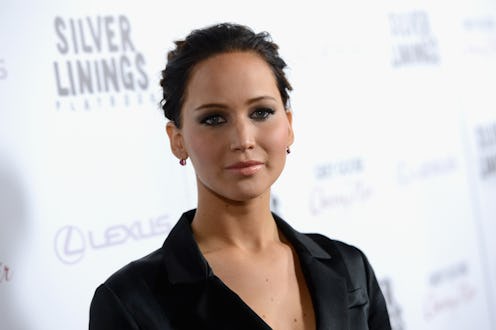Entertainment
Was 2013 Actually Good for Women in Film?
I was first introduced to the concept of the Fighting Fucktoy in the 2011 documentary, Miss Representation. For the unfamiliar, the term can be applied to those female film characters who, while may be acting of her own free will, are hyper-sexualized and exist solely for the male viewer. We're all familiar with these characters: Halle Berry's Catwoman, Jennifer Garner in Daredevil, even buxom Angelina Jolie's Tomb Raider, who was forced to wear a padded bra during shooting while already being a busty actress. However recently the focus has shifted, or so we thought, from these sexpot characters into a greater depth of female lead. This year has seen Katniss Everdeen, a female astronaut, and Disney princesses top the box office over the usual testosterone-filled fare. But is their triumph a step in the right direction?
An article titled Goodbye to Strong Female Characters posted by IndieWire argues that it most certainly is not. The article begins:
We are so over Strong Female Characters. Strong Female Characters were useful a few years ago when there was a dearth of women on film and most were so rubber-limbed, glass-ankled, or prone to fainting spells they literally needed to be carried out of danger by a man.
And while it offers some exceptions (Thelma and Louise, A League of Their Own, Swing Shift, A Cry in the Dark, Yentl) the piece admits that these were exceptions that proved the rule. And they are right. But they also argue that women in 2013's cinema take on the role of "strong female" quite literally, where their physical strength overshadows their mental capacities. It even goes as far as comparing these women to T-Rexes. "Strong female characters have become Strong Female Characters, a mutant sub-genus that has less to do with actual women than T-Rexes: physically intimidating, but mentally nonthreatening," it states. This, we can't agree with.
Sure, Sandra Bullock in Gravity was wearing booty shorts the whole movie (likely a decision made by a male studio exec) and Jennifer Lawrence's costumes were tighter and lower-cut than they appeared to be in the first Hunger Games film, but this doesn't change the fact that these women represented intelligence, wit, sensitivity and most of all — humanness. These characters are flawed, they are ambitious, and they are regular. Yes, they are thrust into irregular circumstance, but Bullock and Lawrence were not only relatable, they were worthy of our investment. The same can't be said for some of the male hero's of 2013: Rush's James Hunt, or Wolf of Wall Street's Jordan Belfort.
This is not to say that 2013 was flawless, far from it. Cinema still supports nearly five times more male dominated story lines than female ones, and the fighting fucktoy is far from extinguished. I could write a dozen other articles on what still needs to be changed, but with the flawed, strong, confused, brave, and intelligent women that appeared in films like Hunger Games, Gravity, Frozen, In a World..., Enough Said and more, I can't help but be happy for the strides, however small, we've taken this year alone.
